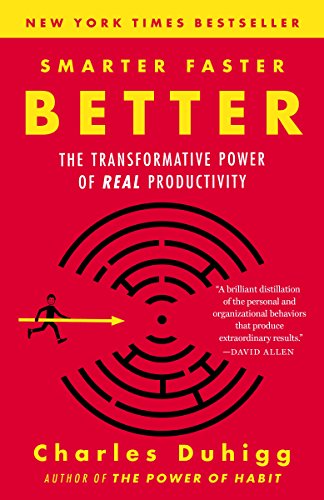
About
Title: Smarter Faster Better Authors: Charles Duhigg Category:supplementals Number of Highlights: 20 Date: 2022-08-20 Last Highlighted: **
Highlights
Teams need to believe that their work is important. Teams need to feel their work is personally meaningful. Teams need clear goals and defined roles. Team members need to know they can depend on one another. But, most important, teams need psychological safety.
On the best teams, for instance, leaders encouraged people to speak up; teammates felt like they could expose their vulnerabilities to one another; people said they could suggest ideas without fear of retribution; the culture discouraged people from making harsh judgments.
Tags:leadership,teamwork
Second, the good teams tested as having “high average social sensitivity”—a fancy way of saying that the groups were skilled at intuiting how members felt based on their tone of voice, how people held themselves, and the expressions on their faces.
Tags:perception,teamwork
The researchers eventually concluded that the good teams had succeeded not because of innate qualities of team members, but because of how they treated one another. Put differently, the most successful teams had norms that caused everyone to mesh particularly well.
From these insights, a theory of motivation has emerged: The first step in creating drive is giving people opportunities to make choices that provide them with a sense of autonomy and self-determination.
Tags:motivation
Self-motivation, in other words, is a choice we make because it is part of something bigger and more emotionally rewarding than the immediate task that needs doing.
One way to prove to ourselves that we are in control is by making decisions. “Each choice—no matter how small—reinforces the perception of control and self-efficacy,”
Teams succeed when everyone feels like they can speak up and when members show they are sensitive to how one another feels.
“Systems teach us how to force ourselves to make questions look unfamiliar,” said Johnson. “It’s a way to see alternatives.”
Motivation is triggered by making choices that demonstrate to ourselves that we are in control.
Tags:favorite,habits,motivation,health,control
Making good decisions relies on forecasting the future, but forecasting is an imprecise, often terrifying, science because it forces us to confront how much we don’t know. The paradox of learning how to make better decisions is that it requires developing a comfort with doubt.
If you can link something hard to a choice you care about, it makes the task easier, Quintanilla’s drill instructors had told him. That’s why they asked each other questions starting with “why.” Make a chore into a meaningful decision, and self-motivation will emerge.
Tags:motivation,habits
Motivation is more like a skill, akin to reading or writing, that can be learned and honed. Scientists have found that people can get better at self-motivation if they practice the right way. The trick, researchers say, is realizing that a prerequisite to motivation is believing we have authority over our actions and surroundings. To motivate ourselves, we must feel like we are in control.
Tags:motivation,habits
The superstars were constantly telling stories about what they had seen and heard. They were, in other words, much more prone to generate mental models.
The choices that are most powerful in generating motivation, in other words, are decisions that do two things: They convince us we’re in control and they endow our actions with larger meaning.
Tags:motivation,work
First, all the members of the good teams spoke in roughly the same proportion, a phenomenon the researchers referred to as “equality in distribution of conversational turn-taking.” In some teams, for instance, everyone spoke during each task. In other groups, conversation ebbed from assignment to assignment—but by the end of the day, everyone had spoken roughly the same amount.
Tags:teamwork
The norms that Google’s surveys said were most effective—allowing others to fail without repercussions, respecting divergent opinions, feeling free to question others’ choices but also trusting that people aren’t trying to undermine you—were all aspects of feeling psychologically safe at work.
The first thing the researchers noticed, as they began crawling through all that data, was that the firm’s most productive workers, its superstars, shared a number of traits. The first was they tended to work on only five projects at once—a healthy load, but not extraordinary.
The Agile methodology, as it came to be known, emphasized collaboration, frequent testing, rapid iteration, and pushing decision making to whoever was closest to a problem. It quickly revolutionized software development and now is the standard methodology among many tech firms.
Tags:teamwork,work,technology
The method Robbins suggested for jump-starting the creative process—taking proven, conventional ideas from other settings and combining them in new ways—is remarkably effective, it turns out. It’s a tactic all kinds of people have used to spark creative successes.
Tags:teamwork,creativity,cognition